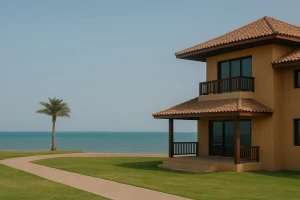Latest News
- Expats Alert: PACI Just Changed The Rules For Updating Your Addr...
- Best Pizza In Kuwait: Top Brands And What To Order
- Best Budget-Friendly Chalets & Villas In Kuwait For Weekend Geta...
- Why Electricity Bills Are Rising In Kuwait & Smart Ways Expats C...
- App Store Optimization: Why It’s Becoming A Core Part Of SEO Str...
- Best Shower Filters In Kuwait For Hair Fall And Skin Protection
- Exness Sets A New Standard Of Consistency In The Trading Industr...
- Instant Withdrawals In Trading – A Game Changer For Traders In K...
- Best Abaya Shop In Kuwait: Editorial Review Of Abay.com
- IPhone 17 In Kuwait: Prices, Colors, Specs & Where To Buy
- Best Drinking Water Filter For Home In Kuwait
- Avoid Common Qatar E-visa Application Mistakes. Learn The Top 5...
Populist Legislation Threatens Kuwait's Future
In response to economically irrational populist demands and parliamentary pressures, experts and economists are warning about the potential catastrophic financial consequences that could push Kuwait into a fiscal impasse and risk its sovereign credit rating and economic stability, reports Al-Qabas daily. Parliament's ongoing chaos of demands, characterized by a lack of economic rationale and an inability to assess their financial impact, has raised concerns.
There appears to be a plan to deplete the "generations" reserve, exacerbated by the government's inability to pass legislation promoting financial sustainability. Experts emphasize the state’s limited capacity to meet ill-considered parliamentary demands with high costs. They stress that all financial and economic indicators point towards a looming financial crisis for Kuwait. It is expected that the situation will worsen without real, executable reform programs backed by a strong commitment to implementing them.
About 80% of the country's budget is allocated to salaries and subsidies, resulting in meager spending on capital projects that often face numerous obstacles. Experts warned that the deficit for the upcoming fiscal year 2024- 2025 may soar to 6.1 billion dinars, assuming optimistic oil prices around $80 per barrel. If oil prices drop to $70 per barrel, the deficit could reach 9 billion dinars.
At this point, salaries, wages, and subsidies would constitute about 113% of general budget revenues, exceeding current expenses. This calculation does not even account for the cost of absorbing 20,000 to 25,000 citizens entering the labor market. It is emphasized that any cash spending in the form of increases or allocations, though appearing as grants on the surface, will not contribute any added value to the economy. Instead, such funds are expected to evaporate in the market, with tangible repercussions, as seen in the example of the housing loan increase reflected in rising land prices in Kuwait.




